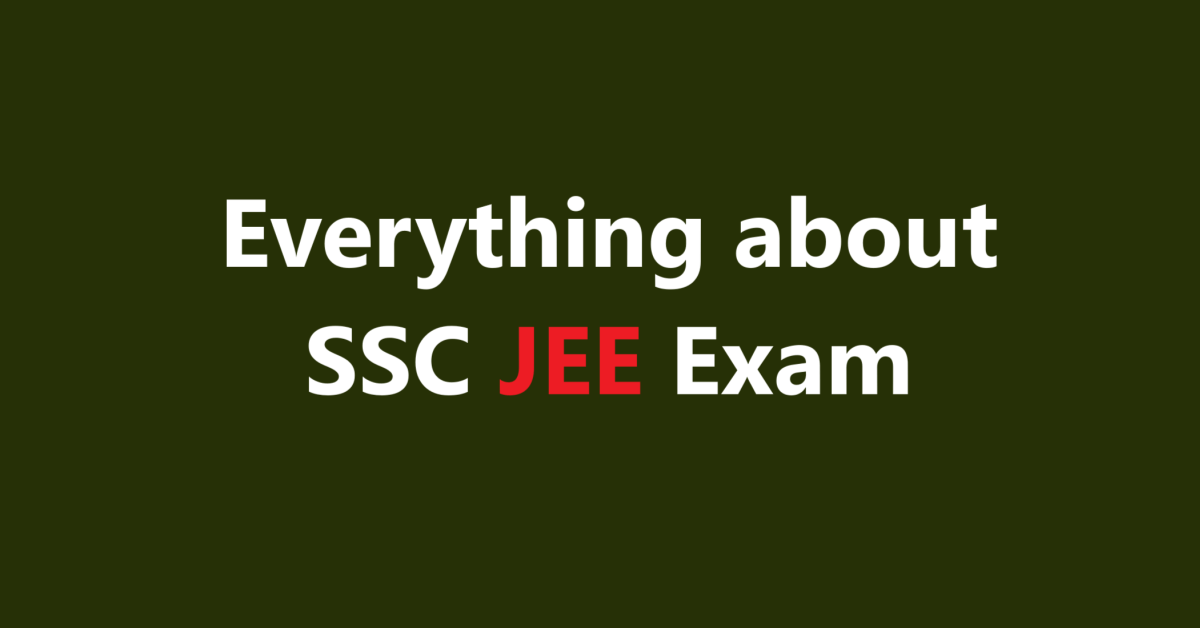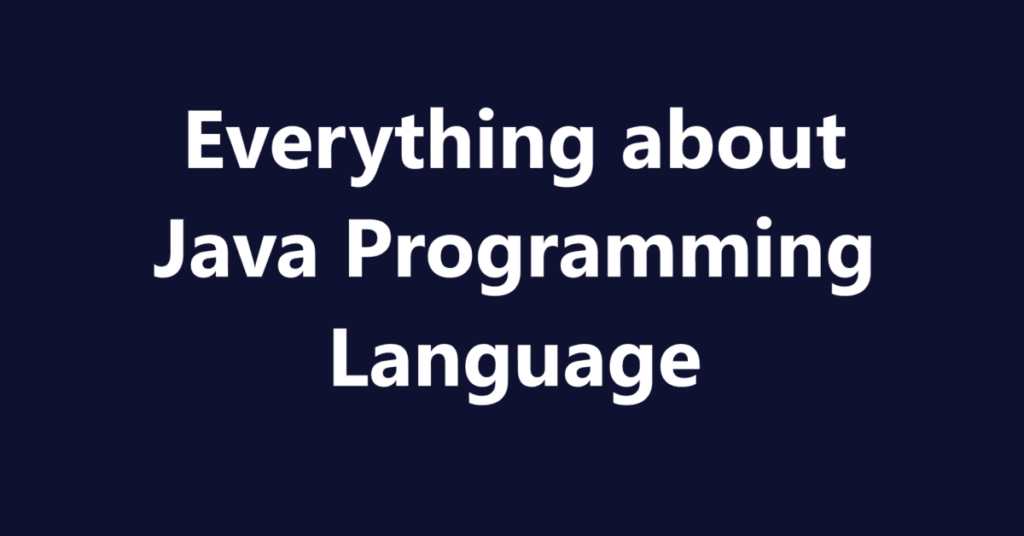Here’s a detailed overview of the SSC JEE (Junior Engineer) examination, including its purpose, eligibility, exam pattern, application process, and more.
What is SSC JEE?
The SSC Junior Engineer (JEE) examination is conducted by the Staff Selection Commission (SSC) to recruit Junior Engineers for various central government departments and ministries in India. The positions primarily fall under the engineering disciplines of:
- Civil Engineering
- Electrical Engineering
- Mechanical Engineering
Key Features of SSC JEE
- Job Nature: The roles offered through SSC JEE are technical positions and may involve project management, supervision, and monitoring of various engineering-related tasks.
- Employment Type: Recruits are usually appointed to the central government departments under various ministries.
Eligibility Criteria
- Educational Qualification:
- Candidates must possess a degree or diploma in the relevant engineering discipline (Civil, Electrical, or Mechanical) from a recognized university or institution.
- Age Limit:
- The age limit typically varies from 18 to 30 years, depending on the specific posts. Age relaxations apply for candidates from reserved categories as per government norms.
Exam Pattern
The SSC JEE exam consists of two papers:
- Paper-I (Objective Type):
- Type: Computer-Based Test (CBT)
- Sections:
- General Intelligence and Reasoning
- General Awareness
- General Engineering (Civil, Electrical, or Mechanical)
- Total Questions: 200 (50 questions for each section)
- Total Marks: 200
- Duration: 2 hours
- Paper-II (Descriptive Type):
- Type: Written Examination
- Format: Engineering drawing and design.
- Total Marks: 300
- Duration: 3 hours
Syllabus Overview
- General Intelligence and Reasoning: Logical reasoning, pattern recognition, and problem-solving skills.
- General Awareness: Current events, sports, history, geography, and basic economics.
- General Engineering:
- Civil Engineering: Building materials, construction methods, and structural engineering.
- Electrical Engineering: Electrical circuits, machines, and network theory.
- Mechanical Engineering: Thermodynamics, mechanics, and design.
Application Process
- Online Registration: Candidates must apply through the official SSC website.
- Application Fee: The fee is usually around ₹100; however, women and candidates from SC/ST/PWD categories may be exempted.
- Documents Required: Educational certificates, identity proof, photographs, and any other relevant documents.
Selection Process
- Candidates are selected based on their performance in both Paper-I and Paper-II.
- A merit list is prepared based on the Combined Marks obtained in both papers.
Important Dates
- Notifications: Typically released in September or October.
- Examination Dates: Paper-I is usually held around December, and Paper-II is conducted sometime after the first paper.
Preparation Tips
- Understand the Syllabus and Exam Pattern: Familiarize yourself with each section and format.
- Practice Mock Tests: Attempting mock tests can help with time management and understanding the exam environment.
- Strengthen Basics in Engineering: Focus on fundamental engineering concepts and problem-solving techniques.
- Stay Updated on Current Affairs: Regularly read newspapers and articles to enhance your general awareness.
How to prepare for SSC JEE Exam
Preparing for the SSC JEE (Staff Selection Commission Junior Engineer) exam requires a focused approach due to the technical nature of the syllabus. Here’s a comprehensive guide to help you prepare effectively:
1. Understand the Exam Pattern
Familiarize yourself with the exam structure:
- Stages: The exam consists of Tier-I (Objective type) and Tier-II (Descriptive type).
- Subjects:
- General Intelligence and Reasoning
- General Awareness
- Technical Subjects (Civil, Electrical, Mechanical, etc.) depending on your engineering discipline.
2. Create a Study Plan
- Set Goals: Outline specific targets for each subject and set a timeline for your preparation.
- Daily Schedule: Allocate dedicated time slots for each subject based on their weightage and your comfort level.
3. Gather Study Materials
- Recommended Books: Collect standard textbooks for your engineering discipline, as well as general books for reasoning and general awareness.
- Online Resources: Utilize online courses, video lectures, and forums for additional learning and problem-solving.
4. Deep Dive into Technical Subjects
- Focus heavily on the technical subjects related to your engineering field:
- Conceptual Understanding: Ensure a clear understanding of core concepts.
- Practice Problems: Solve numerical problems and case studies relevant to your field.
5. Regular Practice and Revision
- Mock Tests: Regularly take mock tests to track your preparation and improve time management.
- Previous Question Papers: Solve past year papers to familiarize yourself with the types of questions and exam format.
6. General Awareness Preparation
Stay updated with current affairs:
- Read newspapers, magazines, and follow reputable online platforms for daily news.
- Focus on topics like government schemes, economic cycles, and recent developments in technology and engineering.
7. Improve Reasoning and Analytical Skills
- Practice: Solve puzzles, logic problems, and reasoning exercises regularly to enhance your analytical skills.
- Sample Papers: Work through reasoning sections of previous year papers.
8. Time Management
During preparation, practice managing your time:
- Use timers while taking practice tests.
- Work on pacing yourself to ensure you can complete sections within the time limit during the actual exam.
9. Revision Strategy
Set aside time for regular revision:
- Create concise notes for quick reviews.
- Focus on important formulas, key concepts, and standard operating procedures in your technical field.
10. Maintain Well-being
Ensure a balanced routine:
- Get enough rest and maintain a healthy diet.
- Engage in regular exercise to keep your mind and body fit.
Additional Tips
- Join Study Groups: Collaborate with peers to discuss topics and solve problems together.
- Coaching Classes: If necessary, consider joining coaching institutes for structured guidance and expert support.
Frequently Asked Questions (FAQs)
- Can candidates choose their examination center?
Yes, candidates can select their preferred exam centers during the application process. - Is there negative marking in SSC JEE?
Yes, there is a negative marking system in Paper-I. Typically, 0.25 marks are deducted for incorrect answers. - What is the minimum educational qualification for SSC JEE?
Candidates must have a degree/diploma in the relevant engineering discipline. - How is the final selection made for SSC JEE?
The final selection is based on the combined performance in both Paper-I and Paper-II. - What are the career prospects after qualifying for SSC JEE?
Successful candidates can work in various government departments and can expect good career growth, stability, and benefits.
Here are some frequently asked questions (FAQs) about the SSC JEE (Junior Engineer) examination, along with detailed answers:
FAQs About SSC JEE
1. What is the SSC JEE exam?
The SSC JEE exam is conducted by the Staff Selection Commission for the recruitment of Junior Engineers (Civil, Electrical, and Mechanical) in various central government departments and ministries.
2. What are the eligibility criteria for SSC JEE?
- Educational Qualification: Candidates must hold a degree or diploma in relevant engineering disciplines (Civil, Electrical, or Mechanical) from a recognized university or institution.
- Age Limit: Generally, candidates should be between 18 and 30 years old. Age relaxations apply for reserved category candidates.
3. What is the exam pattern for SSC JEE?
The SSC JEE examination consists of two papers:
- Paper-I: Computer-Based Test (Objective type), comprising sections on General Intelligence and Reasoning, General Awareness, and General Engineering (specific to the chosen engineering discipline).
- Paper-II: Descriptive paper focusing on engineering drawing and design.
4. Is there negative marking in the SSC JEE exam?
Yes, there is negative marking in Paper-I. Typically, 0.25 marks are deducted for every incorrect answer.
5. How many questions are there in SSC JEE Paper-I?
Paper-I consists of 200 questions in total, with each section containing 50 questions.
6. What topics are covered in General Engineering?
- Civil Engineering: Topics like building materials, structural engineering, and construction methods.
- Electrical Engineering: Topics like electrical circuits, machines, and power systems.
- Mechanical Engineering: Topics such as thermodynamics, fluid mechanics, and mechanics.
7. What is the application process for SSC JEE?
Candidates need to apply online via the official SSC website, following these steps:
- Registration
- Filling out personal and educational details
- Uploading necessary documents
- Paying the application fee
8. What is the application fee for SSC JEE?
The application fee is generally around ₹100, with exemptions for women and reserved category candidates.
9. When is the SSC JEE exam usually conducted?
The SSC JEE exam is typically conducted once a year, with notifications released around September or October and exams held around December.
10. How is the final selection made for SSC JEE?
The final selection is based on the marks obtained in both Paper-I (objective) and Paper-II (descriptive), with a merit list prepared accordingly.
11. Can candidates choose their exam centers?
Yes, candidates can select their preferred exam centers while filling out the application form.
12. Are there opportunities for promotions after qualifying for SSC JEE?
Yes, candidates can expect various career advancement opportunities within their respective departments based on experience, qualifications, and departmental exams.
13. What if I miss the exam or do not receive my admit card?
Candidates should reach out to the SSC helpline or check the official website for guidance on such issues.
14. Are there reserved seats for different categories?
Yes, the Government of India provides reservations for SC, ST, OBC, and other reserved categories as per its norms.
Conclusion
The SSC JEE examination is a significant opportunity for engineering graduates to secure stable government employment. By understanding the exam pattern, eligibility criteria, and preparation strategies, candidates can enhance their chances of success.


